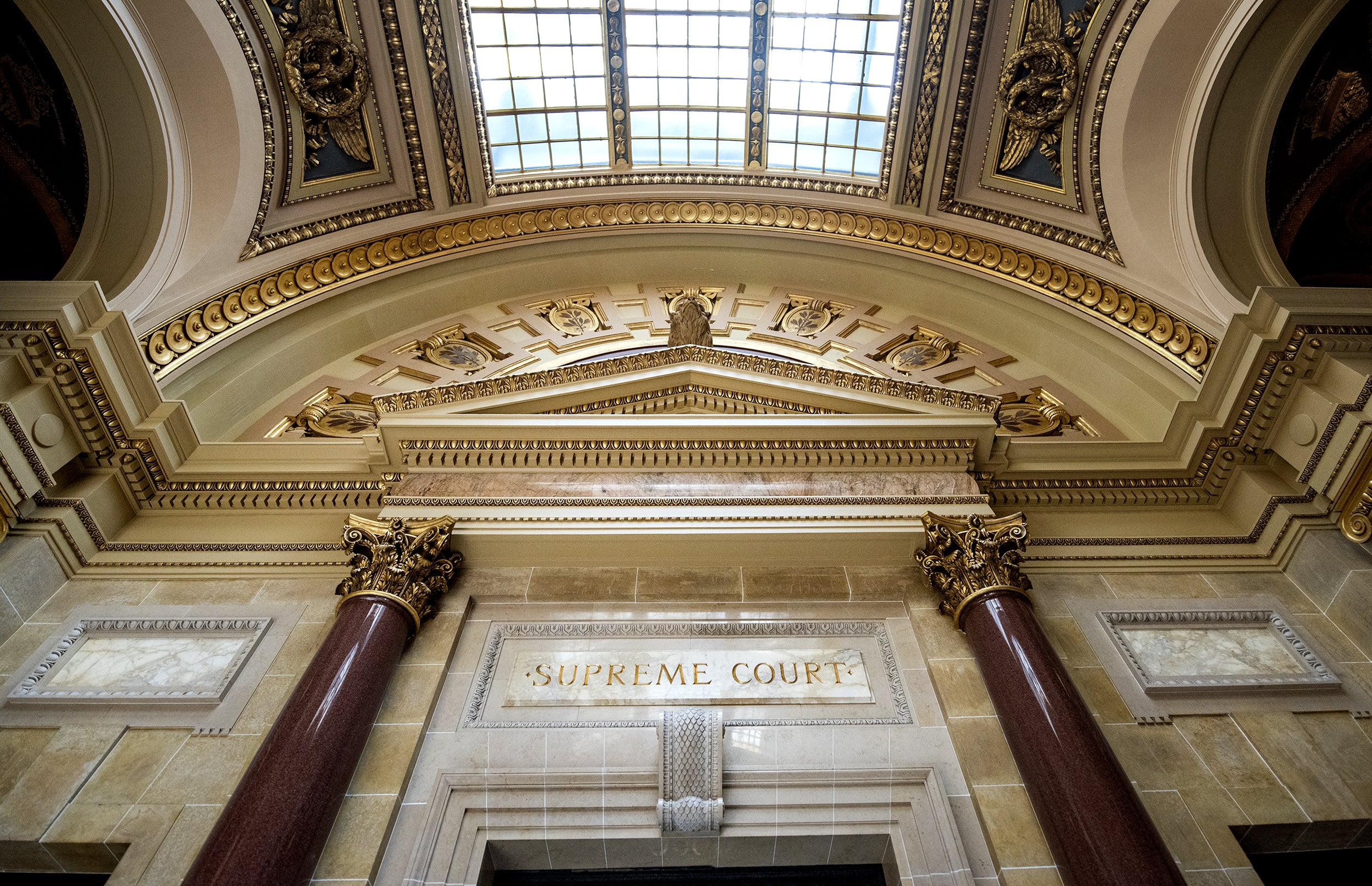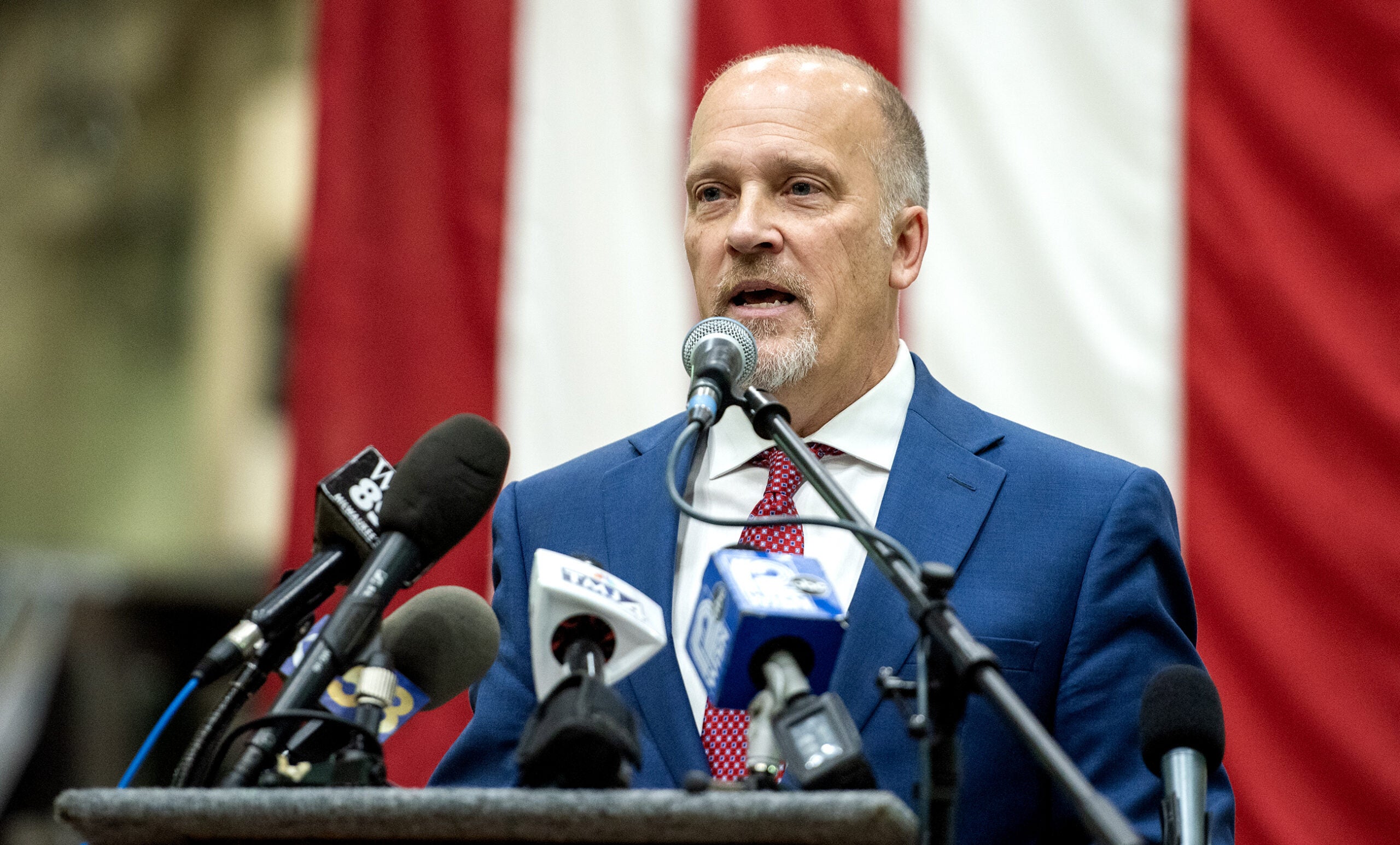The Wisconsin Supreme Court has temporarily blocked a lower court order that was preventing Republican legislators from hiring private attorneys in advance of the next round of redistricting.
Justices also agreed to hear an expedited appeal of the decision Dane County Circuit Court Judge Stephen Ehlke issued in April when he ruled that the Legislature can’t hire outside lawyers until there’s a lawsuit pending.
Thursday’s ruling does not involve any actual redistricting plans, or any lines on a map. But it does mean — at least for the time being — that Republicans can hire private lawyers at taxpayer expense to get ready for the contentious process that happens once every decade.
News with a little more humanity
WPR’s “Wisconsin Today” newsletter keeps you connected to the state you love without feeling overwhelmed. No paywall. No agenda. No corporate filter.
The contracts under dispute in this case were signed by Republican leaders in late December and early January.
One, which was signed with Consovoy McCarthy PLLC, called for paying the firm $30,000 per month for “pre-litigation counseling” starting in January and up to $965,000 in 2021.
The other, which was signed with Bell Giftos St. John LLC, called for paying the firm an hourly rate of $375 per hour. The firm includes Kevin St. John, who was deputy attorney general under former Republican Attorney General J.B. Van Hollen.
A group of plaintiffs represented by Madison attorney Lester Pines sued, arguing the Legislature can’t hire the attorneys until there’s a redistricting case pending.
Ehlke agreed, and when Republicans asked him to “stay,” or temporarily halt his ruling pending appeal, he declined. After Republicans appealed the case to Wisconsin’s District III Court of Appeals, Appeals Court Judge Lisa Stark also declined to issue a stay. Later, a three-judge panel, including Stark, made a nearly identical ruling.
That prompted Republicans to ask the state Supreme Court to step in, and while the court has yet to decide the underlying merits of the case, conservative justices gave GOP leaders the ruling they’d hoped for.
The court issued two orders Thursday. In one, which justices issued unanimously, the court agreed to hear the case. In the other, which was handed down by the court’s four-justice conservative block, the court stayed Judge Ehlke’s ruling and admonished him for making “errors of law.”
The court’s majority wrote that Ehlke had failed to consider that Republicans had “more than the mere possibility” of success on appeal. Conservatives also wrote that Ehlke failed to consider the potential harm to legislators by denying them from hiring their attorneys of choice.
“If the circuit court’s injunction remains in effect while this appeal is pending, the Legislature will not be permitted to have the assistance of lawyers who focus on the once-every-decade issue of redistricting during the short window of time in which the Legislature will have the first opportunity (pursuant to the state constitution) to draw the required new districts,” wrote the court’s conservatives.
That potential harm, conservative justices wrote, outweighed the potential harm to taxpayers if they’re forced to pay for legal contracts that are eventually ruled void.
The court’s three liberals dissented with Justice Rebecca Dallet, writing that it would have been “nonsensical” for Ehlke to have granted the stay when he had just ruled against legislators. Dallet also ridiculed the idea that Republican legislators were somehow harmed by a ruling that delayed them from hiring private lawyers.
“Legislators offer no argument or evidence for why the staff attorneys at the Department of Justice, the Legislative Council, the Legislative Reference Bureau, and the Legislative Technology Services Bureau are incapable of providing legal advice related to the redistricting rules and regulations,” Dallet wrote. “The majority offers only its own baseless speculation that Wisconsin’s redistricting law is too ‘specialized and complex’ for Wisconsin’s public attorneys to handle.”
While the Wisconsin Department of Justice is run by Democratic Attorney General Josh Kaul, Wisconsin’s Legislative Council, the Legislative Reference Bureau and the Legislative Technology Services Bureau are all nonpartisan agencies.
The court’s majority laid out a timeline for filing briefs in the case that could take up to two months. By that time, detailed U.S. Census data is scheduled to have been released and the redistricting process may have already begun in earnest.
Conservative justices said they would set a timeline for oral arguments in this case “in due course.”
Wisconsin Public Radio, © Copyright 2025, Board of Regents of the University of Wisconsin System and Wisconsin Educational Communications Board.





